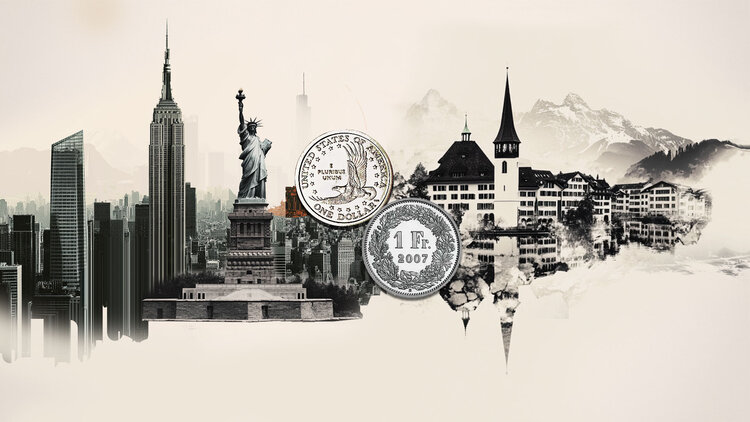Physical Address
304 North Cardinal St.
Dorchester Center, MA 02124
Physical Address
304 North Cardinal St.
Dorchester Center, MA 02124

The Swiss Franc is underperforming on Friday, hammered by a moderate risk appetite and the threat from hefty US tariffs on Swiss imports, which is boosting a mild USD/CHF recovery from Thursday’s lows at 0.8045 to levels nearing 0.8100.
The Swiss President Karin Keller-Sutter left Washington on Thursday without an agreement to avoid the 39% tariffs set by US President Donald Trump. This is one of the highest levies applied to US trading partners, and is likely to exert significant damage to the Swiss export-oriented economy.
Swiss data released on Friday revealed that the SECO Consumer Climate Index improved in the three months to July, reaching a reading of -28 from the previous month’s multi-year low of -39, but remains at relatively low levels, hinting at a weak economic outlook.
The US Dollar, on the other hand, is failing to take a significant advantage of a vulnerable CHF, as investors remain away from the Greenback, awaiting more clarity about the replacements of the Federal Reserve’s vacancies.
Furthermore, US Jobless Claims data released on Thursday added to the evidence of a weak US labour market and kept investors’ hopes of September rate cuts alive, despite the cautious comments from St Louis Fed Governor Raphael Bostic.
All in all, the US Dollar is picking up from lows but remains trading within the weekly narrow range, between 0.8040 and 0.8120, consolidating at lower levels, following a reversal from 0.8170 after the weak US Nonfarm Payrolls report released last week.
Switzerland is the ninth-largest economy measured by nominal Gross Domestic Product (GDP) in the European continent. Measured by GDP per capita – a broad measure of average living standards –, the country ranks among the highest in the world, meaning that it is one the richest countries globally. Switzerland tends to be in the top spots in global rankings about living standards, development indexes, competitiveness or innovation.
Switzerland is an open, free-market economy mainly based on the services sector. The Swiss economy has a strong export sector, and the neighboring European Union (EU) is its main trading partner. Switzerland is a leading exporter of watches and clocks, and hosts leading firms in the food, chemicals and pharmaceutical industries. The country is considered to be an international tax haven, with significantly low corporate and income tax rates compared with its European neighbors.
As a high-income country, the growth rate of the Swiss economy has diminished over the last decades. Still, its political and economic stability, its high education levels, top-tier firms in several industries and its tax-haven status have made it a preferred destination for foreign investment. This has generally benefited the Swiss Franc (CHF), which has historically kept relatively strong against its main currency peers. Generally, a good performance of the Swiss economy – based on high growth, low unemployment and stable prices – tends to appreciate CHF. Conversely, if economic data points to weakening momentum, CHF is likely to depreciate.
Switzerland isn’t a commodity exporter, so in general commodity prices aren’t a key driver of the Swiss Franc (CHF). However, there is a slight correlation with both Gold and Oil prices. With Gold, CHF’s status as a safe-haven and the fact that the currency used to be backed by the precious metal means that both assets tend to move in the same direction. With Oil, a paper released by the Swiss National Bank (SNB) suggests that the rise in Oil prices could negatively influence CHF valuation, as Switzerland is a net importer of fuel.